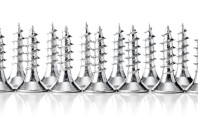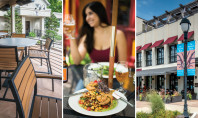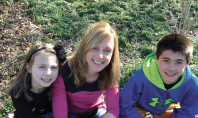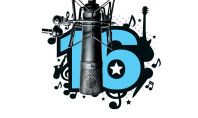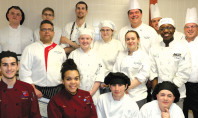Celebrating Memorial Day: A Vietnam Veteran’s Story
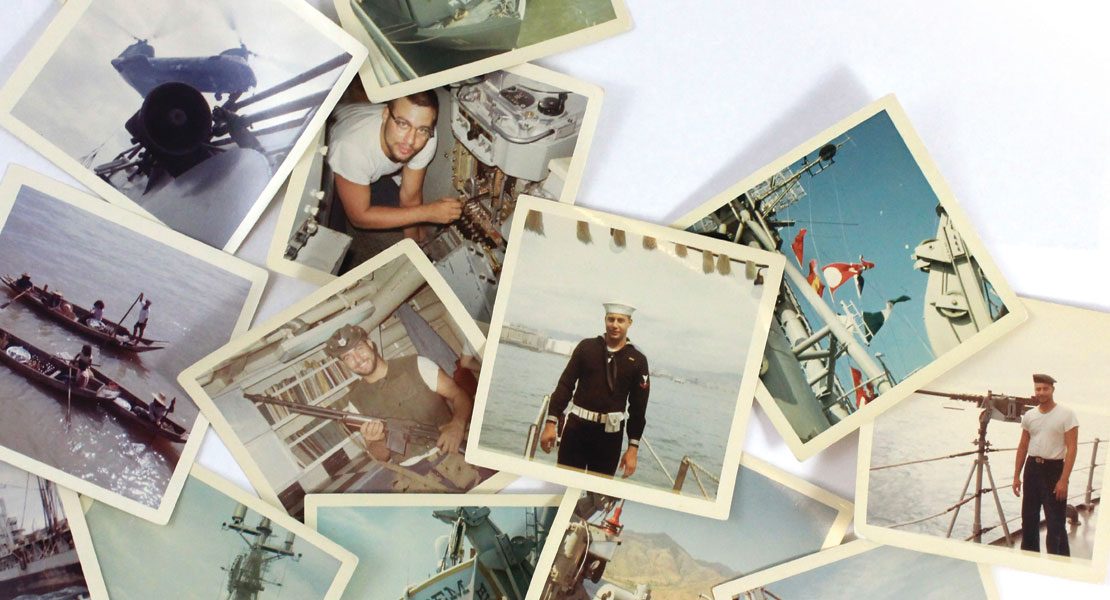
Allentonian David Binder was just 19 years old when he joined the U. S. Navy in 1963. Now 70, he and Lois (his wife of nearly 44 years), are the parents of three, and the grandparents of seven. He retired from PPL Electric Utilities in 2013.
Dave’s a veteran of two tours in Vietnam, and agreed to give us a glimpse of his military life.
Lehigh Valley Marketplace: How did you get into the Navy? Were you drafted?
Dave Binder: I was one year out of high school and working a dead-end job. I believed that we had a duty to serve our country – my father was in the Army during World War II – so I enlisted. I entered boot camp in San Diego in November ’63, the same month President Kennedy was assassinated.
I followed that with 40 weeks of Navy electronics school in San Francisco, and graduated as an electronic technician specializing in radar.
LVM: What sort of weapons training did you have?
DB: The .50 caliber machine gun; its ammunition is about 5 1/2” long, and the projectile itself is a half-inch in diameter. It could fire about 250 rounds-per-minute. But only in short bursts. Otherwise, its barrel might overheat and warp. I also had to use a .30-caliber Browning automatic rifle [BAR], and a Thompson sub-machine gun, which you might know as a “tommy gun.”
The small, handwritten note said, “We know you are there.” I cried like a baby. Those simple words were a significant message that I needed to hear.
LVM: What was your first assignment?
DB: The USS Hissem, DER-400, a destroyer escort radar picket ship out of Newport, Rhode Island. She was 300’ long, 36’ feet across at her widest point, and had a crew of 160. I spent three years aboard her, and logged over 200,000 nautical miles on the North Atlantic, the Caribbean – month-long patrols between Cuba and Florida – the Pacific, the Gulf of Tonkin and in the South China Sea.
LVM: How did you end up in Vietnam? And what did you do there?
DB: In mid-1965, we were assigned there. The Hissem spent a month in the Boston shipyards getting prepped. After that, we sailed through the Panama Canal and set up a home port in Pearl Harbor. We patrolled along the inlets, harbors and coastline of South Vietnam from August ’65 to June ’67, as part of Operation Market Time.
LVM: What was that about?
DB: Large quantities of guns and war supplies were coming to the Viet Cong by sea. Operation Market Time was set up to stop that.
The country’s coast was divided into segments, and each part was patrolled by DERs, coastal minesweepers, Coast Guard patrol boats and Navy swift boats. We searched junks, boats, and other watercraft, and often rendered shore bombardment and gunfire support with our three-inch [shell diameter] gun mounts and .50 caliber machine guns. Our vigilance stopped the gun-runners, shut off the war supplies, and virtually closed off enemy infiltration by sea.
LVM: How active was your part in all this?
DB: I was one of a dozen or so crew members that searched junks. My job was to hold the suspects at gunpoint while the other team members searched the boats. Depending on the circumstances, I’d use the BAR, a tommy gun, or an on-board .50 caliber machine gun. I also manned a .50 caliber machine gun during patrols.
LVM: Did you ever have to fire any of them?
DB: Yes, I did – all of them at one time or another. In fact, I used the BAR during the first hour of my first day of my first tour! Our .50-caliber guns hadn’t been installed yet, so the BAR was our heaviest weapon. On our first junk patrol, we encountered three suspicious boats. When we hailed them, they all sailed off in different directions; I fired several warning shots to turn them around.
LVM: Were you ever shot at yourself?
DB: Oh, yes. While I manned the .50-cal guns on a swift boat, machine gun fire from on-shore missed me by just inches. And on another occasion, I felt a slug from small-arms fire whiz through my hair.
LVM: It’s practically a cliché that “war is hell.” Do any particularly rough moments stand out for you?
DB: My worst memory with regard to the war, is the looks in the eyes of the men, women and children that I held at gunpoint while we disturbed their livelihoods and searched their boats. When you go to war, you cross a line where you sacrifice ideals for survival. That alters you forever.
LVM: We’re often encouraged to send “care packages” to deployed troops. What kind of effects do they have?
DB: Morale was low our first Christmas over there. In an attempt to bring some holiday cheer, I built a Christmas tree out of old charts, a mop-handle trunk, and green packing material. I also dyed a white uniform red – actually kind of pink – with red beet juice I got from the cook; and used the mop head as a beard. I roamed the ship on Christmas Eve, until we were called to battle stations. We spent the next 10 hours there, until Viet Cong positions were pinpointed by Vietnamese Army units. The combined gunfire from our ship and a sister destroyer dispersed the assembling Viet Cong forces.
My worst memory with regard to the war, is the looks in the eyes of the men, women and
children that I held at gunpoint while we disturbed their livelihoods and searched their boats.
Later that day, my own morale was suffering – almost four months of war, combined with hours of thinking about Christmas while our guns spewed death and destruction. We had received packages of cookies and candy from families that supported “Operation Christmas Star,” a national effort to support our soldiers and sailors. I went to the mess deck, grabbed a plastic baggie of cookies and headed out to the fantail for some privacy.
When I opened the bag of chocolate chip cookies, I noticed a folded piece of paper among them. The small, handwritten note said, “We know you are there.” I cried like a baby! Those simple words were a significant message that I needed to hear. If anybody wonders whether home-front support really matters, it does. It reminds us that there are people who care for us, and want to see us get back home. It reassures us that normalcy still exists, and that we have something to look forward to.
Being recognized that way made the hardship of war easier not only on that Christmas, but the following Christmas as well. That happened nearly 50 years ago, and my eyes still fill with tears when I think about it.
LVM: Could you sum up your experiences?
DB: My life has suffered deep emotional changes because of that war and the memories that have continued. But I also gained confidence in myself and realized that diversity in people and skills is essential to efficient and productive teamwork; respect is not optional, and the very least of us has great value.
Our lives are the product of what we can make happen with the decisions we make; and what we make happen despite the decisions of those who can decide for us.
I believe the universe is held together by equal and opposite forces; and as bad as one can be is as good as one can be. It is simply a matter of what choices we make as an individual, and as a people.



